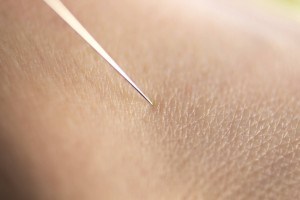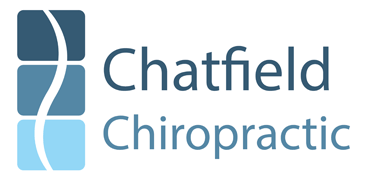Dry Needling
 Dry needling is a fantastic modality of treatment for musculoskeletal pain. Dr Dan knows that this type of intervention can help with a range of conditions, and get you back to health faster.
Dry needling is a fantastic modality of treatment for musculoskeletal pain. Dr Dan knows that this type of intervention can help with a range of conditions, and get you back to health faster.
If you want to know more about dry needling and how it may help you with your pain, call us now, at Roxburgh Park (03) 9303 9952 or Sunbury (03) 9746 3977 to make an appointment.
Trigger point dry needling is particularly useful for treating muscle spasm that accompanies common conditions such as nerve irritation, arthritis, ligament sprains, muscle strains and disc problems. It is called “dry” needling, because, unlike the needles that you get when you go get a flu injection, there is no solution that is injected. It is the needle itself that produces the desired effects within the tissue.
When you injure yourself, your body produces inflammation to help the healing process. The surrounding musculature also go into spasm, in an attempt to splint the area and guard against further injury. Whilst these protective mechanisms are crucial to our survival, they inhibit the blood supply to the area, restricting oxygen-rich blood from travelling to the area as well as removing of waste products.
This area then becomes hypoxic, which means there is a decreased oxygen, and so the body, as a reaction, produces fibroblasts. Fibroblasts then form scar tissue. This fibrosis of the tissues shortens it and restricts the muscle’s ability to fully lengthen and function. This can also lead to compression of surrounding structures such as nerves, which happens in conditions such as carpal tunnel syndrome.
Dry needling involves the insertion of small needles into a contracted painful muscle knot to create a local twitch response which helps reduce muscle contraction, reduce chemical irritation, decrease pain and improve flexibility. The body reacts to the local foreign invader by cause a controlled local inflammation, which helps breakdown the scar tissue so that the new muscle fibres can be laid down in an optimal pattern.
We should clarify that trigger point dry needling is NOT the same thing as acupuncture! Dry needling is based on Western medical research, where as acupuncture originates from traditional Chinese medicine. Although the same types of needles are used, and often they may be inserted into the same spots, the diagnosis and philosophy behind the need for treatment is very different.
Another question we often get asked is whether dry needling hurts or not. For some people, you may feel the insertion of the needle and the local muscle twitch response, which can be painful for some (albeit should be very brief). Many patients often also report being sore after the treatment, both around the immediate area where the needle was inserted, but also where it referred. Typically this ache will only last a few hours, and shouldn’t last more than 2 days. Soreness can often be alleviated with ice or heat and performing stretches that are specific to the target muscles.
So if you want to find out more about how dry needling may help you on your path to recovery, call us now, at Roxburgh Park (03) 9303 9952 or Sunbury (03) 9746 3977 to make an appointment.
